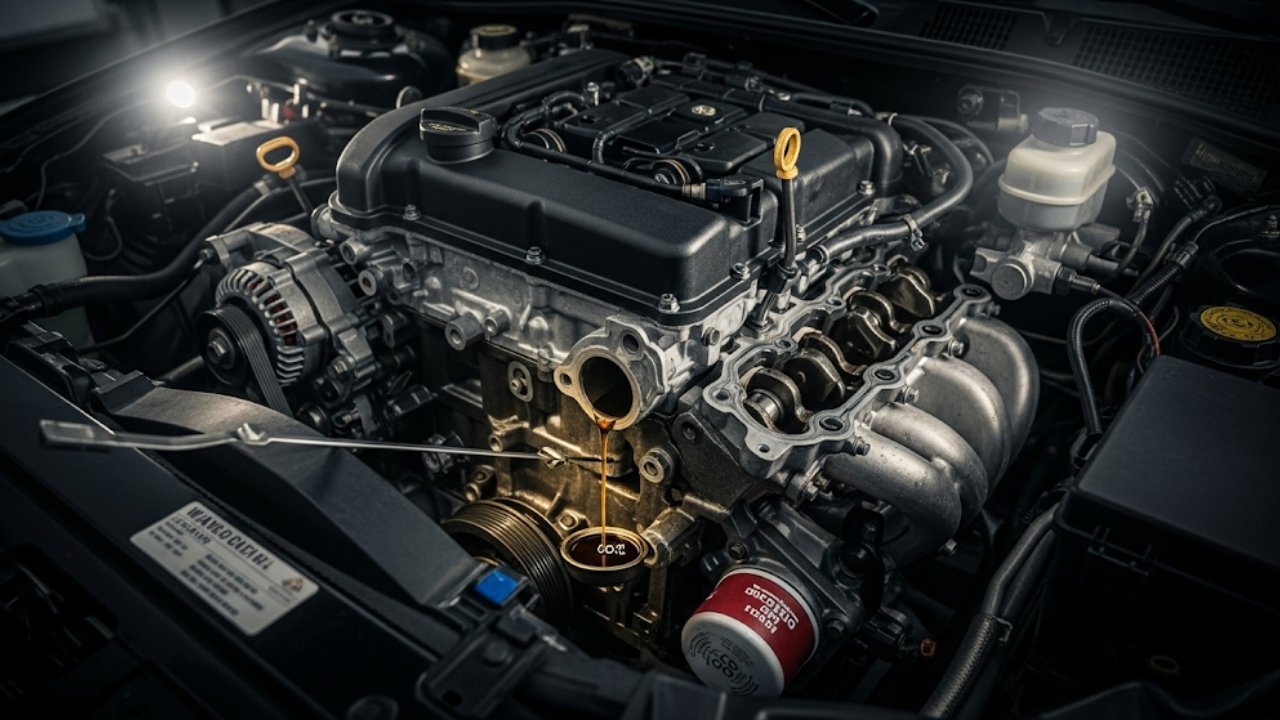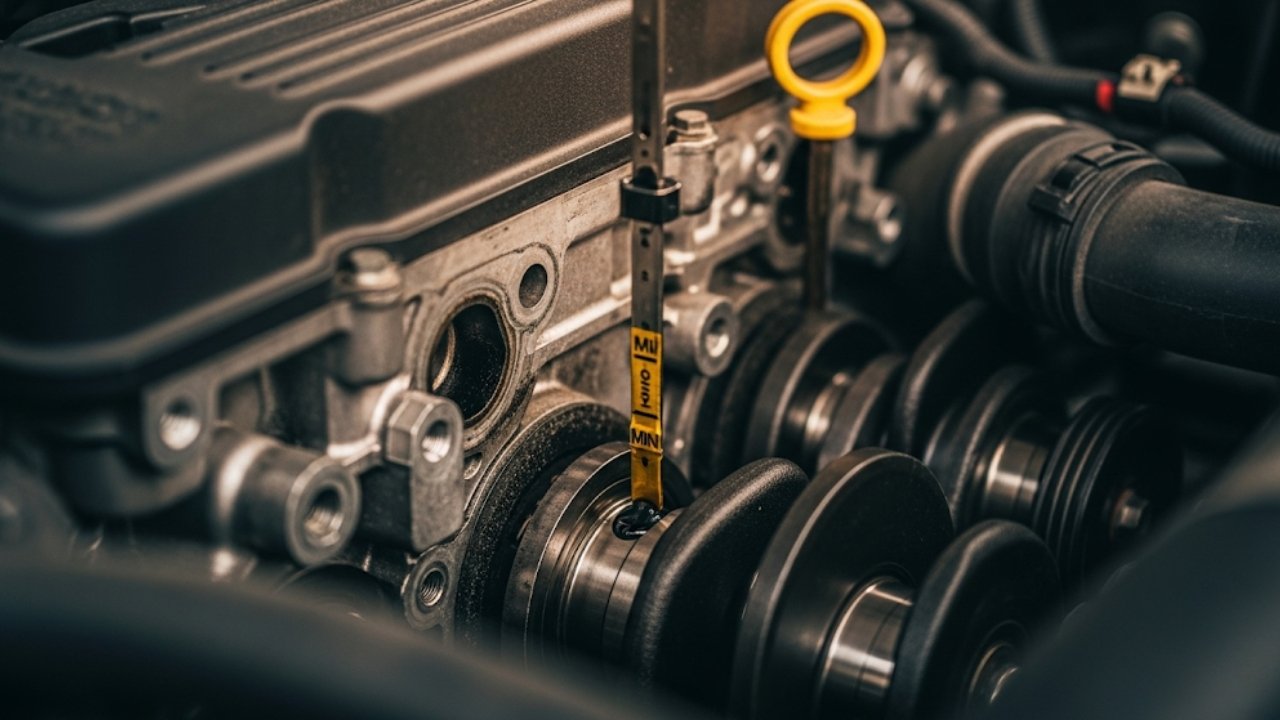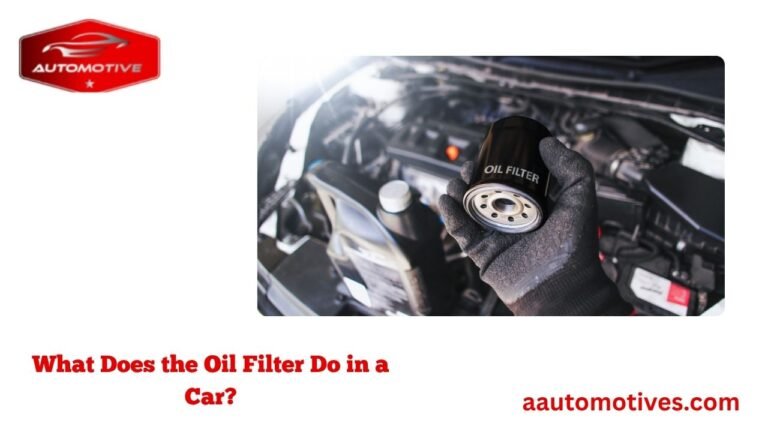Will a Car Overheat with Low Oil?

You’re cruising down the road, windows down, favorite song playing—then suddenly, the engine temperature warning light flickers on. You wonder, “Is my engine overheating?” And then it hits you… you haven’t checked your oil level in a while. Could it be that simple? Could low oil be the culprit?
In this guide, we’re going to explore one of the most important but often overlooked questions: Will a car overheat with low oil? The short answer is yes—but the long answer is far more interesting and critical for your car’s health and your wallet.
We’ll break down how engine oil really works, how it ties into your cooling system, what happens when it runs low, and how it all leads to overheating. Plus, we’ll share personal insights, car ownership stories, and practical steps so you can avoid that dreaded roadside breakdown.
Let’s dive deep into the mechanics—and emotions—behind low oil and overheating.
How Engine Oil Keeps Your Car Cool (Yes, It’s Not Just the Coolant!)
A lot of drivers believe that the radiator coolant is the only fluid that controls the engine temperature. But did you know that engine oil plays a massive role in cooling too?
Here’s what your engine oil does:
Lubricates moving parts, reducing friction
Carries away heat from internal parts
Reduces wear and tear on the engine
Protects against rust, sludge, and deposits
Imagine oil as your engine’s invisible shield—it flows around like a protective river, reducing heat caused by constant metal-on-metal contact. When you have enough oil, it distributes heat evenly, keeping parts like pistons, bearings, and valves from melting down.
But when oil runs low, friction increases. And more friction means more heat. Without enough oil, your engine becomes a pressure cooker on wheels.
Will a Car Overheat with Low Oil? The Truth Behind the Heat

Here’s why:
Oil reduces friction. Low oil = more friction.
More friction = more heat.
Without enough oil, engine parts can’t glide—they grind.
Grinding creates intense heat fast.
Heat builds up and overwhelms the cooling system.
So even if your radiator, thermostat, and coolant are working perfectly, your engine can still overheat because oil isn’t doing its job.
It’s like trying to run a marathon in flip-flops. You might survive the first few miles, but eventually, you’ll crash—and so will your engine.
Real-World Signs of Overheating Due to Low Oil
Let’s keep it real. You might not notice low oil right away. But when your car starts showing these signs, you’re already dancing on the edge of engine damage:
The temperature gauge is rising fast
You smell something burning
Engine makes ticking or knocking sounds
Warning lights flicker (oil pressure or check engine)
You notice reduced performance or sluggish acceleration
I once ignored an oil light on a long drive, thinking I could make it to the next gas station. Big mistake. Ten minutes later, the engine got so hot, it shut down completely. I had to call a tow truck and ended up paying for a full rebuild.
Lesson learned: low oil isn’t just a small problem—it’s a ticking time bomb.
Why Low Oil Often Goes Unnoticed Until It’s Too Late
It’s surprisingly easy to miss the signs of low oil, especially in newer cars that are so quiet and “smart” they lull us into a false sense of security.
Here’s why many drivers don’t realize their oil is low:
Modern engines are quieter—even when struggling
Many cars don’t show warning lights until damage starts
People confuse overheating symptoms with other issues (like coolant leaks)
Oil leaks or burns slowly over time without big puddles
It’s like having a slow leak in a balloon. The air (or oil) slips away gradually, and by the time it’s noticeable, it’s already affecting performance.
If you drive long distances, haul heavy loads, or live in hot climates, your car burns more oil than usual. That’s why checking it regularly is more than a good habit—it’s essential maintenance.
Bullet Points: Quick Effects of Low Oil on Engine Temperature
Here’s a simple breakdown of how low oil causes overheating:
Less lubrication = more internal friction
Less oil volume = less heat transfer
Hotter metal parts = increased risk of engine seizure
Oil warning light may show after the damage has begun
Overheating from low oil can destroy the engine in minutes
Comparing Low Oil vs. Coolant Issues (Table)
| Feature | Low Oil | Coolant Problem |
|---|---|---|
| Main Function | Lubrication & heat reduction | Heat absorption & transfer |
| Overheating Risk? | Yes | Yes |
| Warning Signs | Ticking sounds, oil light | Steam, temp gauge spikes, coolant smell |
| Common Causes | Oil leak, burning oil, infrequent checks | Radiator leak, bad thermostat, air pocket |
| Damage Timeframe | Minutes to hours | Can vary, but often slower than oil issues |
| Can It Cause Engine Failure? | Definitely | Yes, if ignored |
As you can see, low oil is every bit as dangerous—if not more—than a coolant issue. The scary part is that it sneaks up more silently and often causes faster damage.
The Vicious Cycle: Low Oil Makes Coolant Work Harder
Here’s something many car owners don’t realize: when your oil is low, it throws off the balance of the whole engine system. The coolant has to overcompensate, working harder to cool down parts that should’ve been partially cooled by oil.
Over time, this overloads your cooling system too:
Your radiator runs hotter
Your thermostat opens too frequently
Your cooling fan stays on longer
This extra strain causes wear on other parts that weren’t the problem to begin with. So what started as a low oil issue can trigger multiple failures—like dominoes falling one after another.
Emotional Toll: It’s Not Just Your Car That Gets Burned
Let’s talk feelings for a second. There’s nothing worse than hearing from a mechanic that your engine is toast—especially when it could’ve been avoided.
You feel:
Frustrated for missing the signs
Guilty for not checking the dipstick
Anxious about the repair bill
Helpless when your car won’t start
You’re not alone. Millions of drivers have made the same mistake. But you can break that cycle—starting with awareness.
How to Prevent Overheating from Low Oil: Simple Habits That Save Your Engine
The good news is that overheating from low oil is 100% preventable. All it takes is a few mindful habits. Think of them as daily vitamins for your engine. They don’t take much time, but they add years to your vehicle’s life.
Here are the habits every driver should adopt:
Check your oil level every two weeks, especially before long drives.
Change your oil regularly—follow the schedule in your owner’s manual.
Use high-quality oil that suits your car’s engine type and climate.
Inspect for leaks in your driveway or parking spot.
Listen for ticking or knocking sounds—they’re often oil-related.
Watch for the oil pressure warning light, and never ignore it.
Checking your oil only takes two minutes, yet it can save you from thousands of dollars in engine repairs. That’s less time than brewing a cup of tea.
How Often Should You Check Your Oil?
Let’s be honest—we all forget. Life gets busy, and checking oil isn’t as flashy as detailing your car. But it’s way more important.
Here’s a good rule of thumb:
| Driving Condition | Oil Check Frequency |
|---|---|
| Daily commuting (light use) | Every 2 weeks |
| Long-distance travel | Every 1,000 km or before trip |
| Towing/Hauling | Weekly |
| Hot or dusty climates | Weekly |
If you’ve ever thought, “My car doesn’t leak, so I’m fine,”—think again. Engines burn small amounts of oil naturally, and some vehicles consume more than others.
I had a friend with a brand-new SUV that burned half a quart every 2,000 km—normal for that model, but totally unknown to him. By the time he figured it out, it was too late.
So don’t wait for warning lights. Be proactive.
What to Do If Your Car Starts Overheating from Low Oil
Let’s say you’re on the road and your temperature gauge is rising fast. What now? Here’s a step-by-step guide to reduce damage:
Pull over safely—as soon as you can. Do NOT keep driving.
Turn off the engine to stop the heat buildup.
Wait at least 15–30 minutes for the engine to cool down.
Check the oil dipstick. If it’s dry or near dry, that’s your issue.
If you have engine oil with you, add it immediately (don’t overfill).
If you’re unsure or damage has already occurred, call roadside assistance.
Never remove the radiator cap when the engine is hot. It can spray boiling coolant and cause burns.
Sometimes you can top off oil and keep driving. Other times, overheating might have warped engine parts already. Use your gut—and don’t gamble with a knocking engine.
FAQs: Common Questions About Overheating and Low Oil
1. Can low oil cause a car to overheat even if the coolant is full?
Yes. Coolant and oil perform different jobs. Oil lubricates and carries heat from internal parts. Without it, friction builds up and causes overheating.
2. How low does oil have to be to cause overheating?
Even dropping 1 to 2 quarts below normal can trigger overheating in some engines. You don’t need to be completely dry to run into trouble.
3. Is it safe to drive a car with low oil just for a short distance?
It depends. A few blocks might be okay, but even a short drive can cause major damage if the oil level is critically low or your engine is already hot.
4. Will topping up oil fix overheating immediately?
Not always. If the engine has already overheated, adding oil won’t undo the damage. It may help temporarily, but you still need to get your engine checked.
5. Can I prevent overheating just by changing my oil on time?
Regular oil changes help a lot. But you must also check the level in between changes. Some engines burn oil naturally, so timely top-offs are key.
6. What are signs of engine damage from overheating due to low oil?
Look out for ticking sounds, blue smoke, low power, or oil smells. Severe cases may result in blown head gaskets or engine seizure.
7. Does synthetic oil reduce the chance of overheating?
Yes, synthetic oils often handle heat better and resist breakdown longer. They’re a great choice, especially for high-performance or older engines.
8. Can an oil light come on only after damage has started?
Absolutely. The oil pressure light is often a last warning, not an early alert. That’s why regular checks matter more than relying on dashboard signals.
Final Thoughts: Protect Your Engine, Protect Your Peace of Mind
So, let’s bring it all home.
Yes, a car absolutely can overheat with low oil. In fact, low engine oil might be one of the fastest routes to overheating and engine failure. It’s silent, sneaky, and often goes unnoticed until serious damage is done.
But now you know the signs. You know the causes. And you know exactly what to do.
Let’s recap the must-knows in a quick table:
| Key Takeaway | Summary |
|---|---|
| Can low oil cause overheating? | Yes – it increases friction and internal heat |
| Coolant and oil – same thing? | No – they serve different but complementary roles |
| Signs of oil-related overheating | Burning smell, ticking sounds, temp spikes |
| How to prevent it | Regular checks, timely oil changes, use quality oil |
| Damage potential | High – from warped parts to full engine failure |
Closing Advice
Think of your car like your body. Oil is like blood—it needs the right level and quality to function well. Would you run a marathon dehydrated? No way. So don’t expect your engine to survive low oil, either.
Check your oil. Change it on time. Top it off when needed.
Your engine will thank you with smooth drives and fewer breakdowns.
And next time someone asks, “Will a car overheat with low oil?”—you’ll have the perfect answer.






